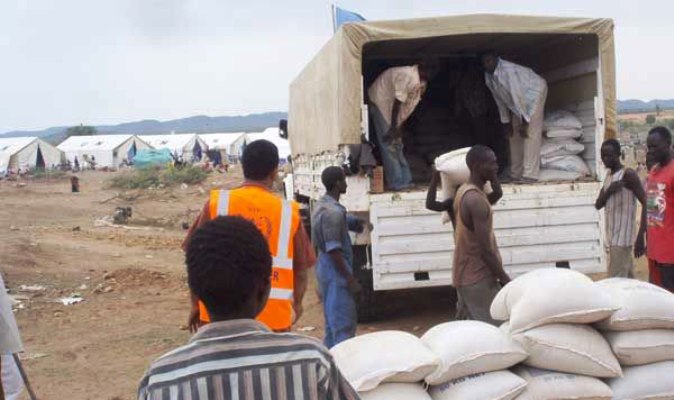Sudan to deliver humanitarian aid to rebel-held areas in S. Kordofan: official

April 15, 2018 (KHARTOUM) – Sudan’s Presidential Assistant Faisal Hassan Ibrahim announced his government would implement a roadmap programme to deliver humanitarian aid to rebel-held areas in South Kordofan.
On Saturday, Ibrahim received the recommendations of the first youth conference on peace and development in South Kordofan.
According to Ashorooq TV, the presidential aide said the government would also launch a child vaccination campaign and provide education requirements in the rebel-controlled areas.
Ibrahim underscored that peace is a strategic not tactical goal for the government, calling on arms bearers to end the war in order to reach a political settlement to achieve permanent peace.
The Sudanese army has been fighting the Sudan People’s Liberation Movement/North (SPLM-N) rebels in the Blue Nile and South Kordofan, also known as the Two Areas since 2011.
The SPLM-N is now divided into two factions: one led by Abdel Aziz al-Hilu and the other led by Malik Agar. The rift emerged last year over the right of self-determination and other organisational issues.
Talks between the Sudanese government and the SPLM-N for a cessation of hostilities and humanitarian access are stalled since August 2016.
The SPLM-N demands to deliver 20% of the humanitarian assistance through a humanitarian corridor from Asosa, an Ethiopian border town.
But the government rejects the idea saying it is a breach of the state sovereignty and a manoeuvre from the rebels to bring arms and ammunition to their locked rebel-held areas in the Two Areas.
The SPLM-N, in November 2016 declined an American proposal to transport humanitarian medical assistance directly to the civilians in the rebel-held areas in the Blue Nile and South Kordofan.
Also, during the last round of talks from 1 to 3 February, the Sudanese government and SPLM-N al-Hilu failed to reach a cessation of hostilities agreement.
The mediation delinked the ceasefire and the humanitarian access and focused at this round only on the cessation of hostilities agreement.
However, differences between the sides emerged when Khartoum proposed that the cessation of hostilities be a step towards a permanent ceasefire and humanitarian access.
(ST)
